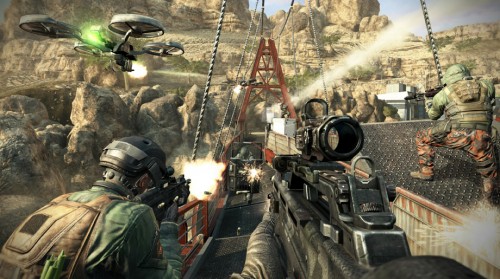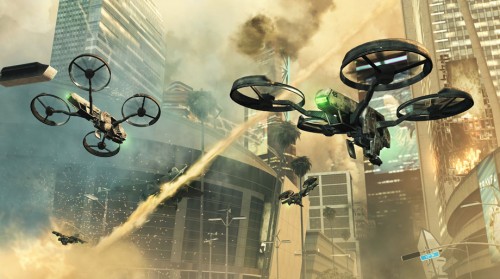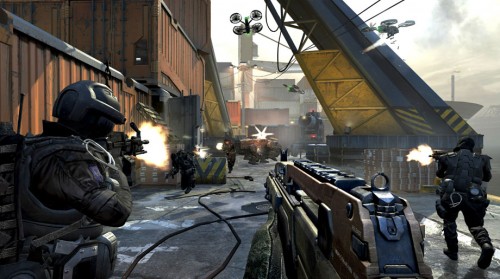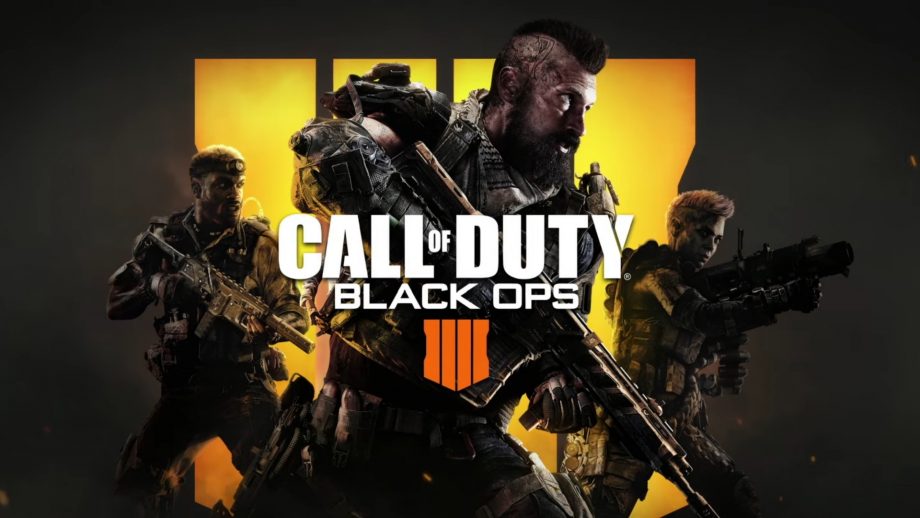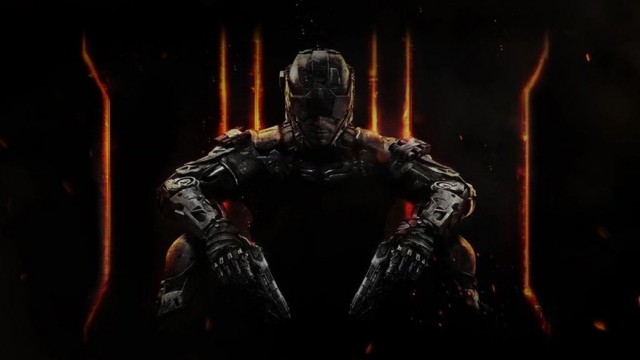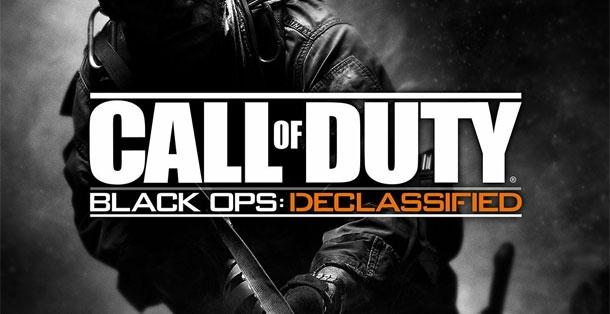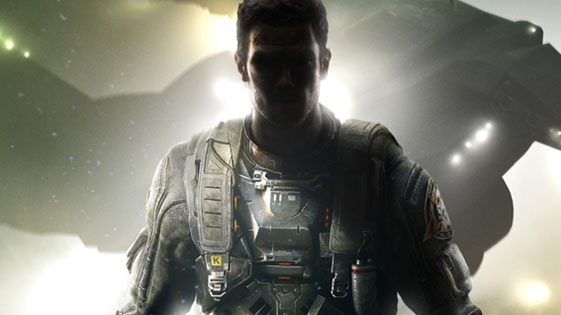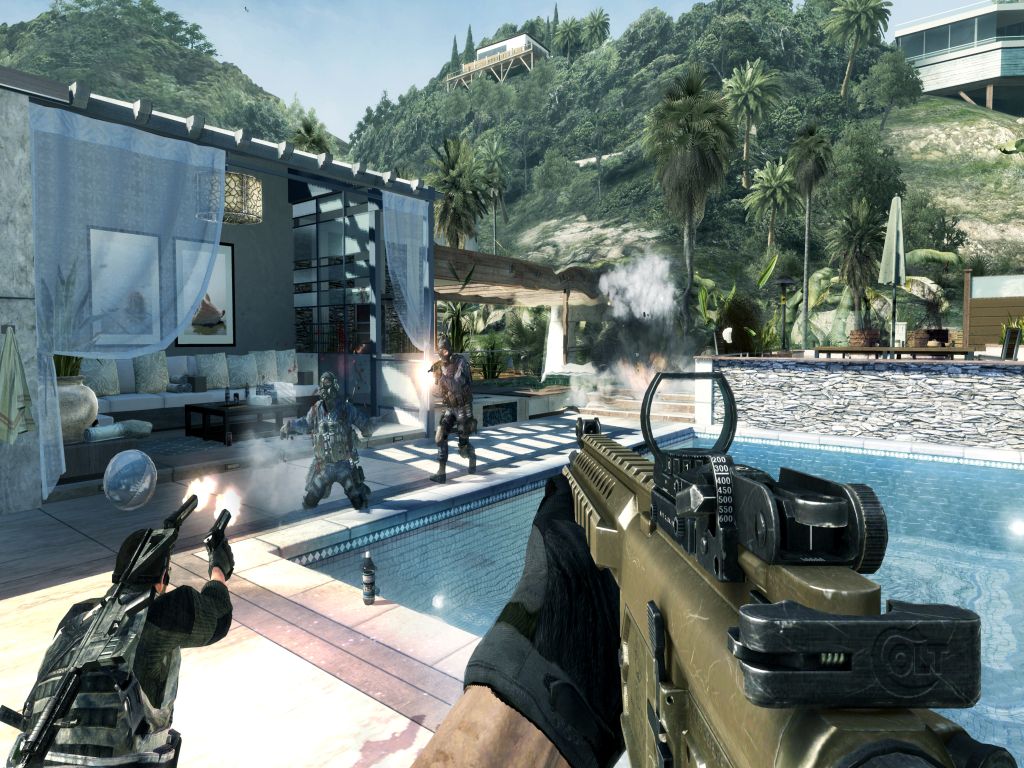
Call of Duty: Black Ops II might not be the second Call of Duty (far from it), but it is the second Black Ops. And that makes it fitting for not one, but two reviews. And who better to give those reviews than Call of Duty veterans Jarrod Mawson and Anthony Capone?
—————————————————————————————————————————
Jarrod Mawson: Real talk, my interest in Call of Duty has progressed along a fairly consistent downward slope since 2003′s original. Okay, that’s not entirely true. There was a slight bump around Modern Warfare, a game I really enjoyed both as single and multiplayer. But for most part, I’ve found the series tripping and stumbling over its roots and failing to appeal to my first person shooter interests. Both Modern Warfare 2 and Modern Warfare 3 in particular represent the worst qualities of the series for me, leaving little optimism for whatever would come next. Surprise, surprise, turns out Black Ops II wasn’t half as bad as I expected.
Anthony Capone: Unlike my jaded brethren, I’ve always enjoyed Call of Duty, despite its lack of major changes year-on-year. I seem to be content spending the 12 months between annualised releases waging war in multiplayer, as my pile of unfinished games grows higher and higher. I’ve always preferred Infinity Ward’s endeavours to Treyarch’s, but after the falling out of the former and the phenomenal success of the first Black Ops, the sequel boasts a fine pedigree. I’ve personally finished the campaign, put the new zombies mode through its paces and invested significant hours in multiplayer. Black Ops 2 isn’t without its shortcomings, but it substantially evolves the franchise, and best of all, looks like its going to feed my FPS addiction for yet another year.
Jarrod Mawson: Most surprising for me was the game’s campaign and its noticeable return to the series roots’ of large scale AI heavy battle sequences, a concept abandoned by most of the Modern Warfare series. The rush for Stalingrad in Call of Duty stands as one of the poignant moments of the series, a chaotic battle with hundreds of soldiers drawn on screen. Black Ops II doesn’t quite reach that scale, but is littered with chaotic, open battlefields that throw the player in the midst of a dynamic bloodbath. Or at least the illusion of dynamics, in part due to the more lenient and free flowing objectives. Say the game requests you destroy armoured vehicles. Where Modern Warfare would strategically lock both the targets and tool of destruction (such as a mortar) and require you simply make your way from point A to B to complete your objective, Black Ops II instead plonks a rocket launcher in your hands and demands you manually hunt down and destroy moving opposition on your own terms. The series trademark hand-holding and scripting is still there, much to my annoyance, but I do feel Treyarch has loosened the reigns a little to give the player more control and involvement in the exciting, scripted scenarios.
Anthony Capone: I’d agree that that the environments felt more immersive than the latest Modern Warfare. Highlights in level design include escorting the US President through downtown LA in the midst of an urban war, and assaulting an enemy stronghold filled with soldiers and unmanned machines of war. The futuristic levels were more appealing than playing the flashbacks, but the constant narrative back-and-forth between past and present was workable. The plot was more personal than the previous game, with themes of family and sacrifice, but to me it just wasn’t as engaging as the first Black Ops. The Strike Force missions were a nice distraction, seeing players controlling a variety of units from a overhead strategic view. However, on the higher difficulties it’s near impossible to mount any defence. You instead have to take control of your units from a first-person perspective and wage the normal one-man war. Failing a strike force mission can impact the main storyline, and oddly, Black Ops 2 has more possible endings than a modern RPG. While I was disappointed that completely failing a single strike force mission automatically prevents you trying any others, I rather liked the diverging plot and seeing the various outcomes. Reiterating Jarrod’s point, Treyarch has really sort to shake up the traditional bombastic Call of Duty campaign, and the outcome is fantastic.
Jarrod Mawson: Echoing thoughts on Strike Force missions, a concept I admire for an attempt for the radical changes it introduces, yet sadly do not have particularly fond memories of due to the execution. Narrative was lost like a passing memory, and I’ll agree that Black Ops II felt unnaturally distant from its predecessor, and thematically disconnected from what I’ve come to expect from Call of Duty, and especially the first Black Ops. I will give props to the choice driven plot, which managed to implement many story driven branches without transparency and signposting, even if the story as a whole didn’t come together all that well.
If Black Ops II impressing me wasn’t surprising enough, then you and I agreeing on a Call of Duty campaign, of all things, surely must be. But then we have the multiplayer. Thoughts?
Anthony Capone: I’ve been a dedicated multiplayer drone since Call of Duty 4: Modern Warfare. Infinity Ward always seemed to pip Treyarch’s online offerings, with consistently better gameplay, loadouts and maps. However, the latter studio has really stepped up with Black Ops 2‘s multiplayer, offering deep player customisation and excellent design choices.
Best of all, multiplayer replicates the silky smooth gunplay of the campaign. Movement and aiming is still the best of any shooter on the market, and the new range of weapons, perks and equipment really compliments the gameplay. Instead of being stuck with the traditional two weapons and three perks, the system now operates on the token basis. Players are allowed a total of ten tokens, with each weapon or skill accounting for one token. You can mix and much any number of combinations, provided no more than ten tokens are taken. For example, players might choose only one primary weapon and forgo other items in favour of having up to six perks. It might sound like a complicated system, but it’s easy to pick up and the possibilities are endless. This is the one Call of Duty game where you can really choose a loadout the best suits your personal playstyle. However, be prepared to grind in order to get the best equipment.
Kill streaks have also been replaced with the aptly named score streaks. Instead of just being rewarded for consecutive kills, you now deploy the usual assortment of drones, care packages and artillery – to name a few – based on the points you net from kills, assists and completing objectives within a lifetime. This overhaul better rewards players and ensures that it’s not only the high kill/death ratio players dominating the field.
Of the hours I’ve sunk into multiplayer, the maps so far have felt rather impressive with a good range of environments and layouts. Black Ops 2 seems more conjunctive to Team Deathmatch than any previous Call of Duty I’ve played, but the other customary modes are still present and entertaining. Combat training also returns, but another drawcard is the new mode known as League Play. Basically, it pits players against people of their own skill level and owes to more the competitive side of gaming. Furthermore, the game supports commentary, playbacks, custom matches and even more than I could possibly scratch the surface in this review. Black Ops 2‘s multiplayer is not only bursting with value, it is an outstanding package.
But did someone also mention zombies?
Jarrod Mawson: I’m mostly on the same page with the multiplayer. I like the altered point based loadout system rather than locked categories as it appears to make for a wider variety of loudouts. Balance is up in the air at this point. I’d need to spend more time with the mode, but my experience weighed heavily in favour of SMGs. And I did have some trouble with inconsistent enemy spawns. Outside of the loadout changes I’m a little concerned not enough has been done to the multiplayer in order to give it a new breath of life, and is perhaps a little too samey for my liking, but fun for Call of Duty fanatics will be had.
Zombies offers similarly incremental changes to the design. The core formula is practically identical to World at War and Black Ops. You’ll still fend off waves of zombies with an assortment of weapons purchased via points earned from kills, and dead ghastlies will occasionally drop familiar power-ups and perks. Survival returns and plays exactly as you’d expect, meaning it’s fun but won’t knock your socks off if you’re not already a Zombies fan, meanwhile the new Grief and Tranzit modes mix things up a bit for fans after a new experience. Grief stretches the max player count from four to eight and pits two teams against waves of zombies. Unable to hurt or revive the opposition, Grief becomes a battle of team survival and, as per the name, griefing the opposition into zombie encounters. It’s really an extension of Survival and plays well enough, but I don’t know if it will win over those worn out by the latter.
Tranzit is the other major addition, which dumps a team of four in a huge semi-story driven map stretching across multiple set pieces and locations. Again, it’s similar to Survival, but the scope of the map and focus on traversal does more for the Zombies game mode than Grief, reminding me a little more of Left 4 Dead. Making your way from location to location can be done on foot, if you’re a risk taker, but most players will want to jump on the automated bus. The bus itself is upgradable with various defences, and schematics and goodies for crafting new weapons are scattered across the map, giving the mode a fun treasure hunt vibe.
When it comes down to it Zombies really plays like…Zombies. I don’t think Grief nor Tranzit shake up the formula enough to hook people who were uninterested with previous offerings, and the mode still pales in comparison to dedicated zombie survival games. But that’s to be expected. It’s an extra mode, not a stand-alone product, and the new additions should be enough to keep Zombies fans satisfied.
I guess we’ve covered everything. Final verdict?
Anthony Capone: Black Ops 2 really shakes up the regular Call of Duty campaign formula for the better. The narrative threads may not be as good as the original Black Ops, but the solo gameplay content is nevertheless impressive and a welcome step away from the norm. Multiplayer is largely the same at its core, but the new loadout system, maps, modes and other modifications are guaranteed to keep shooter fans engaged for another year, and rounding out the astonishing package is another generous dose of zombies. Black Ops 2 injects fresh life into stale franchise and is probably the best Call of Duty of recent years.
Jarrod Mawson: Though I’m a little less overjoyed by Black Ops II, it none-the-less reinvigorated my interest in the series with a multitude of changes and additions to a formula that I believe had long since grown stale. It doesn’t always work, but the honesty of Treyarch’s attempts to unroot stubborn tropes of this generation’s biggest franchise is admirable. I do believe such changes could be taken even further, and I hope the framework set by Black Ops II will serve as influence for the series’ future into next generation. I certainly enjoyed it significantly more than both the previous Modern Warfare titles, and to see the series finally moving forward rather than backwards encourages an optimistic outlook. Fingers crossed for even better things to come.
Welcome changes to SP/MP | Tons of content | Addictive as always
Strike Force missions need work | Occasional multiplayer quirks | Still room to improve

